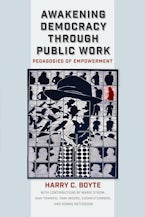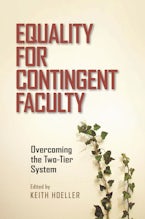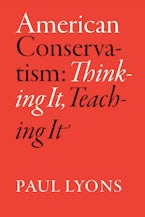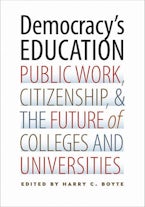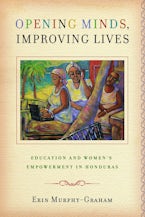- Home
- Excellence for All
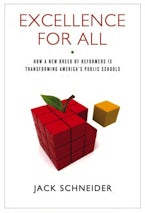
Excellence for All
How a New Breed of Reformers Is Transforming America's Public Schools
"Excellence for all" might, at first glance, appear to be nothing more than a rhetorical flourish. Who, after all, would oppose the idea of a great education for every student? Yet it is hardly a throwaway phrase. Rather, it represents a surprising fusion of educational policy approaches that had been in tense opposition throughout the twentieth century--those on the right favoring social efficiency, and those on the left supporting social justice.
This book seeks to understand why the "excellence for all" vision took hold at the time it did, unpacks the particular beliefs and assumptions embedded in it, and details the often informal coalition building that produced this period of consensus. Examining the nation's largest urban school districts (Los Angeles, Chicago, and New York), the author details three major reform efforts in chapters titled "The Right Space: The Small Schools Movement"; "The Right Teachers: Teach for America"; and "The Right Curriculum: Expanding Advanced Placement."
Jack Schneider is the Robert A. Oden Jr. Postdoctoral Fellow for Innovation in the Liberal Arts. He teaches in the Educational Studies Department at Carleton College.
"Jack Schneider's Excellence for All provides a lucid and compelling survey of education reform that underlines how hard it is to make separate schools for rich and poor work. Heroic efforts to fix high poverty schools by making them smaller, providing them highly educated young teachers, and giving them access to a rigorous AP curriculum all ran up against the reality that economically isolated schools will never be equal."
-- Richard D. Kahlenberg, Senior Fellow, The Century Foundation, and author of Tough Liberal: Albert Shanker and the Battles Over Schools, Unions, Race and Democracy
"Do Americans disagree about how to improve their schools? Of course. But as Jack Schneider shows in this smart little book, they disagree much less than they used to. In an era of sharp political polarization, we have developed a remarkable consensus about educational reform. Schneider's brisk history will help us to understand the origins of our contemporary moment--and, even better, to take account of its costs. Too much harmony can be a very bad thing, if it drowns out the dissonant chords that we all need to hear."
--Jonathan Zimmerman, Professor of History and Education, NYU, and President, History of Education Society
"Jack Schneider has penned a tough-minded, no-nonsense look at the banal nature of so much contemporary education reform. Taking dead aim at the vacuous notion of 'excellence for all,' Schneider makes clear how wishful thinking and muddy reasoning have compromised school improvement efforts. Considering the small schools push, Teach For America, and Advanced Placement curriculum, Schneider has written a book that's a much-needed reminder of the false promise of silver bullets and vapid sentiment. This is a book that educators, parents, and policymakers need to read-- and a reminder why serious reformers had better be sure to eat their Wheaties."
--Frederick M. Hess, Director of Education Policy Studies, American Enterprise Institute, and author of Common Sense School Reform
"A lucid, balanced, and perceptive treatment of recent education reforms by an able historian who both tells a compelling story and draws valuable lessons from it."
--Chester E. Finn Jr., Senior Fellow, Hoover Institution, and President, Thomas B. Fordham Institute
"Schneider offers a well-written historical account of the emergence of the thinking and practice guiding curent educational reform efforts--which he dubs the 'excellence for all' era. [...] Recommended."
--Choice
"Schneider's careful observations about this era and its reformers will provide readers with both a better understanding of why some recent reform initiatives were adopted as well as a deeper understanding of how this era and its rhetoric continues to shape education reform efforts and their likelihood of success."
--History of Education Quarterly

